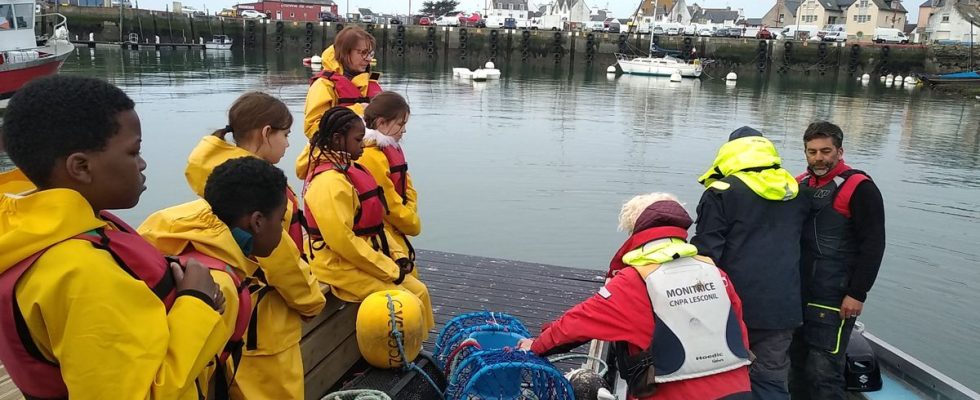They could only see the light of day in Brittany, the most maritime region of France with its 2,470 kilometers of coastline. In the wake of the snow classes, which appeared in the 1950s, it was in 1964 that the first sea class was organized in Finistère. We owe this project to Jacques Kerhoas, teacher and popular education activist, who imagined holding classes at the water’s edge by taking his CM2 students for two weeks to the Moulin-Mer nautical center in Logonna-Daoulas near Brest. “Whether the sea is his destiny or not, the child cannot ignore what constitutes the essential part of his planet,” he thought at the time.
Since then, millions of French toddlers have benefited from these educational stays, discovering alongside their teacher the tidal cycle, marine fauna and flora, fishing on foot or sailing. “It’s an extraordinary experience for children who enjoy a whole range of nautical activities or activities around the marine environment,” assures Julien Fuchs, researcher and professor of Staps at the University of Western Brittany in Brest, which offers up to to December 14 a major retrospective exhibition on sea classes.
The length of stays has been reduced
For many children from disadvantaged backgrounds, these classes were also an opportunity to see the sea for the first time. And for all students, to discover community life far from the family cocoon. “We learn to know each other, to help each other, to listen to each other, so many values that we have lost a little,” underlines Cédrick Hamon. Director of the nautical centers of Pléneuf-Val-André (Côtes-d’Armor) and Sarzeau (Morbihan), this marine educator sees thousands of students from all over France pass through his structures. Over the years, he has gradually seen sea classes evolve. Starting with their duration. “A few years ago, classes could go away for two weeks or even three weeks,” he explains. Now it’s more like a week or ten days because the communities have fewer resources. »
The time when a large majority of children went to sea school in the 1970s or 1980s is indeed over. From the 1990s, the number of students admitted declined sharply. This is due to regulations which have tightened for school trips, discouraging many teachers, and to new safety standards introduced in buildings. “National Education also put an end to seconded teachers in these classes and we therefore had to review our model,” recognizes Cédrick Hamon. Not to mention the cases involving educators who didn’t help anything. »
Financial support from the Brittany region
The Covid crisis then shut down all nautical centers hosting classes at sea for two years, leaving some behind. “Several structures have closed their doors, notably for the benefit of developers due to real estate pressure on the coast,” he laments. But, despite all these storms and the shrinking budgets in educational establishments, the thirty sea school centers in Brittany are resisting. They are even on the rise since the health crisis is behind us. “My order book is full for 2024 and this was already the case for 2023,” assures Cédrick Hamon.
After months of confinement, more and more teachers feel the need to teach classes outside. “It’s also a real need for kids who get some fresh air while at school,” emphasizes Julien Fuchs. Vice-president of the Brittany region in charge of the sea and the coast, Daniel Cueff is also convinced of the benefits of sea classes, very important according to him “in the training of the child. » “And this can also inspire vocations among some for careers in the sea,” he admits.
To support the Breton ecosystem and allow as many students as possible to leave, the region launched a sea school pass in 2021. This financial aid, amounting to a maximum of thirty euros per child per day for stays of at least two nights, made it possible between March 2022 and August 2023 to finance more than 285 days and help 13,000 students go to the seaside. “We now want to set up twinning between schools and sea classes to create habits and for these stays to be more regular,” underlines the elected official, who would like each Breton student to go to sea class at least once during their schooling.

